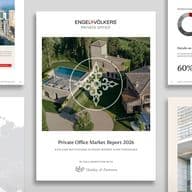
- 3 min read
Differentiating a castle from a manor, a daunting task?

In the luxury real estate sector, the terms manor and castle often rub shoulders with each other, without it being clear on what differentiates one from the other. In most people’s mind, the castle generally refers to the feudal castle, designed to defend the town and its population from its enemies, while the manor evokes a large country house, as there are many for example in the English countryside. Nevertheless, to understand the true subtleties of the two types of prestige properties, it is necessary to conduct a semantic search and therefore to be able to establish a clear distinction.
Semantics of the terms ‘manor’ and ‘castle’
To understand the differences between a manor and a castle, it is important to first refer to the definitions proposed by the dictionary. According to the Larousse dictionary, a manor is "the dwelling of a fief owner who was not allowed to build a castle with towers and a dungeon", but also a "dwelling often old and with character, of some importance, surrounded by land”. These two definitions give us already significant clues of the differences that exist between the two types of properties.
Regarding the definition of castle, this same Larousse dictionary refers to it as a "seigniorial or royal residence" and a "fortified feudal residence". Here again, we can find the constituent elements of what a castle appears to be. Nevertheless, the semantics can be used more precisely to differentiate between these two types of houses.
Some architectural differences linked to history
The confusion today between the terms manor and castle is partially due to the disappearance of feudalism and the loss of the defensive use of castles over the centuries. Indeed, their architectural signature gradually faded and they lost what originally differentiated them from the manor. In fact, historically, the castle is a prestigious property of a feudal lord or king, from which he has authority over his fiefdom. This is why castles are normally located in the heart of a city or town, so that they could accommodate the population in case of trouble.
From this point of view, the singularity of a castle lies in the fact that it has visible defensive elements: moats, walls, towers, ditches, amongst other key clues. Nevertheless, for those who know the real estate heritage well, the presence of these elements can not alone certify that the property is effectively a castle. Indeed, with the end of the feudal era, the castles have lost their use of defense, and their owners have sometimes extensively renovated them, to enjoy a better level of comfort. This could result in architectural upheavals, including the loss of these defensive elements mentioned above.
The mansion, a prestigious property without fortification
If the term of manor very often reflects a dwelling located in a rural area, it is because, originally, it was indeed the centre of a rural territory administered within it. The manor was the home of a nobleman, from which he administered his estate of farmland. But, unlike the lords located in the cities, these nobles were denied the right to endow their homes with towers and a dungeon.
This partly explains the generally widespread image of the manor as a country house smaller than a castle. With the option of fortifying his home, the nobleman at the head of a manor couldn't indeed rise against his lord, to whom he had to ask for protection in case of adverse circumstances. It is therefore understandable that today, in the real estate sector, the manor has kept this perception of a prestige property, elegant, rural and of significant proportions without being totally oversized.
Thus, if over the centuries the difference between the terms castle and manor have faded, a trip into our feudal history can draw the real semantic differences between the two words. The only certainty is that both refer to luxurious homes, which are very popular in the real estate market.
You may also be interested in
 Engel & Völkers renforce sa présence dans l’immobilier de luxe à Nice
Engel & Völkers renforce sa présence dans l’immobilier de luxe à Nice Private Office Market Report 2026
Private Office Market Report 2026- 2 min.
- 03.12.2025
 Paris Olympics 2024
Paris Olympics 2024&w=1920&q=75) Reasons to hire a real estate agent
Reasons to hire a real estate agent Why choose a sole agency agreement?
Why choose a sole agency agreement? France premium prestige real estate advisory
France premium prestige real estate advisory Short-term event hire Paris: Tennis, Rugby World Cup, Olympic Games and Paralym
Short-term event hire Paris: Tennis, Rugby World Cup, Olympic Games and Paralym Renting? 7 things you can negotiate with your landlord
Renting? 7 things you can negotiate with your landlord
Contact
Contact your personal advisor


Engel & Völkers France
170 Rue du Faubourg Saint-Honoré
75008 Paris
Tel: +33145643030